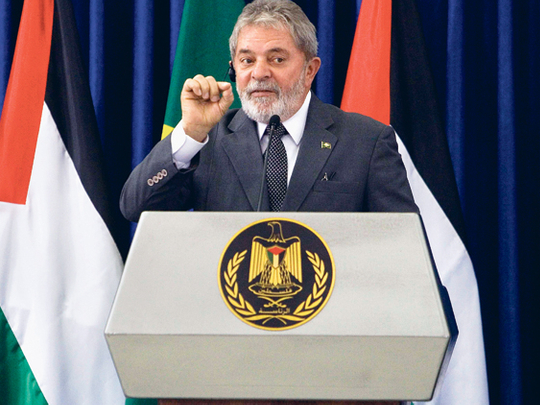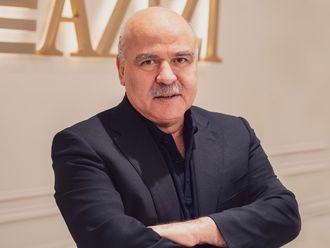
Sao Paulo : Thousands of Brazilian schoolchildren and city and state workers were given the afternoon off to gather in Rio de Janeiro yesterday and protest a federal law that would reduce the amount of petroleum royalties the energy-rich state now gets.
Less oil money, they say, could also hamper plans to host the 2014 soccer World Cup and the 2016 Olympics in Brazil. Rio's governor said the proposed law, which would share Brazil's oil revenues more evenly among the country's 26 states, was "a lynching" for his state, and openly wept when discussing the legislation.
If passed, the amendment would cost Rio at least $2.8 billion (Dh10 billion) in annual income and be calamitous for the state's future, said Gov. Sergio Cabral.
"With this amendment the Olympics and World Cup are no longer viable," Cabral said. "Towns will grind to a halt. The state won't have the resources."
Rio became South America's first Olympic city last year when it was chosen to host the 2016 Olympics. Brazil will also hold soccer's 2014 World Cup, with Rio hosting the media and the final match.
Much of the resources needed to prepare the city for those events come from oil royalties. Almost 90 per cent of Brazil's oil comes from fields off the Rio coast and much of the deep-water reserves discovered in 2007 and 2008 lie in the same area.
Under current laws, about half the oil profits go to states and municipalities producing the oil, about one third goes to federal coffers, and the rest goes into a fund for social welfare programmes.
The country's energy minister has called on the Senate to tone the bill down, saying it is too "radical." Many analysts expect Luiz Inácio Lula da Silva to veto the bill, which will likely lead to more negotiations over sharing the oil wealth.












